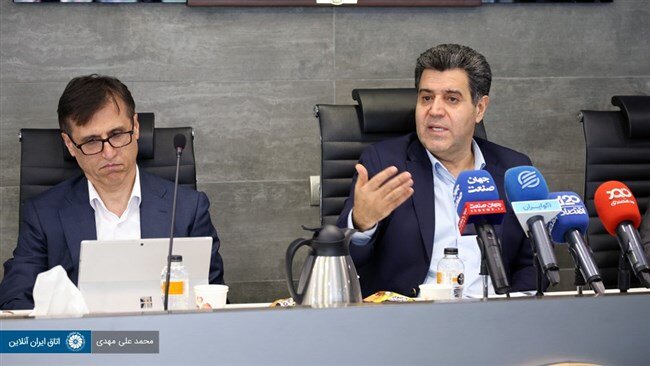ICCIMA calls for reshaping economic governance, empowering private sector in post-war recovery

TEHRAN – Following the recent 12-day conflict, Iranian economists and business leaders are calling for a fundamental restructuring of the country’s economic governance, emphasizing the need to boost the private sector’s share in the economy and transition from a state-dominated model to a more dynamic, resilient system.
At a forum on key post-war economic priorities hosted by the Iran Chamber of Commerce, Industries, Mines and Agriculture (ICCIMA)’s Research Center and the Federation of Business Management and Consultants, Isa Mansouri, head of the chamber's research center, said Iran faces three strategic pathways in the aftermath of the conflict: a Japan-style reconstruction, prolonged resistance similar to Cuba’s, or what he called “active resistance”—drawing parallels with the Netherlands in the 16th century and China in the 1950s.
“The most likely scenario is active resistance. But to move forward, we must rely on two key tools: structural reform and economic resilience,” Mansouri said. He stressed that past approaches have focused too heavily on resilience, while ignoring deep-rooted structural risks within the Iranian economy.
Mansouri noted that the country's economic sentiment index (Shamekh) recently fell to 37—well below the baseline of 50—underscoring persistent uncertainty. He warned that short-term policy packages are insufficient and that long-term structural changes are essential.
Drawing from the lessons of the 2007 and 2011 European crises, Mansouri argued that support should target the private sector rather than enforcing austerity measures. “In global recessions, the collapse of the private sector has always cascaded into banking and government sectors. The U.S. outperformed Europe in recovery precisely because it focused on relieving private sector pressure.”
He outlined the current composition of Iran’s economic ecosystem: the government controls roughly 25 percent, public quasi-governmental institutions hold 30 to 35 percent, and the private sector operates with just 10 to 15 percent.
“With such an imbalanced ecosystem, the current outcomes are inevitable,” Mansouri said. “Without restructuring this model, repeated resilience policies will only deepen the systemic dysfunction.”
Concluding, Mansouri said Iran’s core economic problem lies in its outdated structure, not in its resilience strategies. “We must reconfigure the current economic ecosystem. Strengthening the private sector and reducing rent-seeking power centers is essential—and that requires deep legal and institutional reforms. Without that, private sector participation will not increase.”
EF/MA
Leave a Comment